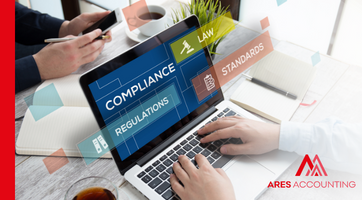The UAE is at an economic crossroads which is bringing about considerable changes to the taxation of companies registered in the territory. Companies in the UAE need to be ready and rethink their strategies from 2023 onwards in order to align themselves with the global economy and especially to move closer to the OECD.
Therefore, it is essential for companies to approach professionals to comply with the current tax regulations.
Shareholders and decision-makers need to be vigilant with the entry into force of the Corporate Tax Act and the new amendments to the Value Added Tax (VAT) Act.
Obtaining the services of tax professionals in Dubai has become paramount.
With a few months to go before the Corporate Tax comes into effect in Dubai and the UAE, here are our tips to help you prepare for all these changes:
Preparing for the new corporate tax in the UAE
Corporate tax in the UAE will come into effect for most companies’ financial year from 1 June 2023. The rate of this tax is 0% on taxable income up to AED 375,000, and 9% on any income above AED 375,000. There are three categories of persons: taxable, exempt and out of scope.
Further reading: What is Corporate Tax?
Registering for VAT
In the UAE, the Federal Tax Authority (FTA) has introduced many changes to the UAE VAT law and has revamped the tax system with EmaraTax, a new digital platform for managing your taxes.
It is imperative for company directors to ensure they are compliant with the VAT laws and guidelines issued by the FTA.
Ensuring VAT compliance will become essential in 2023 as new amendments are expected to increase the frequency of VAT audits in the UAE.
You must therefore ensure that your documentation and returns are accurate and timely to avoid any penalties and be prepared in case of a tax audit or assessment by the FTA.
Implementing sound accounting practices
In 2023, it will be critical for business owners to develop robust accounting processes and disciplines. You must also implement effective record keeping policies and procedures. In addition, businesses will be required to maintain books of account to explain the information contained in the UAE corporate tax return and other documents. The books must be complete and not contain undisclosed income or expenses.
Creating an effective tax strategy in 2023
The UAE is no longer a tax haven and to comply with the wishes of the OECD, companies need to prepare effectively for corporate tax and VAT in the coming years. You need to develop a sound tax strategy to fully comply with the applicable taxes in the UAE.
Tax planning is much more than estimating the tax liability at the end of the year and how much you need to set aside to pay your taxes. At a high level, it’s about looking at your entire financial situation and ensuring that all facets work together so that you pay the least amount of tax at tax time. With an effective tax strategy, you can avoid compliance failures, the corresponding penalties and damage to your reputation. You can seek the help of tax advisors in Dubai for further assistance.
Hire an accounting firm in Dubai
Tax compliance should be your top priority in 2013, given the latest developments in the UAE tax regime. You can hire professionals to manage your financial health.
Ares Accounting has a team of highly qualified and experienced accounting experts who can help you assess your current tax situation, advise you on the appropriate tax treatment, etc.
We can also help you comply with the UAE Corporate Tax Law, Economic Substance Regulation (ESR), Ultimate Beneficial Ownership (UBO) and Anti-Money Laundering Law (AML).
For more information and a detailed quote, please contact us at support@ares-accounting.com.


